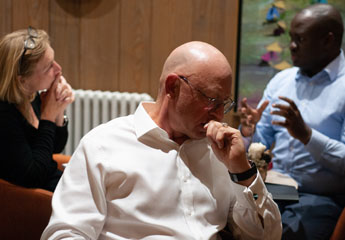This blog post looks at some of the author’s travel observations and outlines the actions he has taken in response.
Having traveled extensively over many years what struck me most was the following;
#1. People. We are a virulent virus across habitable space.
#2. Waste. It is pervasive. Our legacy is plastic. Not the magnificence of Petra, or Antioch or Caesarea, but instead fields of plastic and rubbish.
#3. Desires / Aspirations. I like talking to people, asking what are your aims/goals? Inevitably responses are about Maslow’s fundamentals. Makes sense. For those who are in the red (struggling to put food on table, roof over head, clean water, security and safety) it is impossible to be green, (unlike those in the top 8% who produce 90% of emissions), but behind the need lurks a strong desire for… stuff, more stuff, = success.
Sadly, this ‘more’, is, hey “good for business”.
Business becomes agile, leaner, embracing new technology, shedding jobs. Profits rise and that helps the 1% get even richer. Market capitalism is now saying business needs a vision beyond mere returns – it needs to have a social purpose – see NAB Chair’s latest revelations (if you can, but you have to pay to read it). Even top-of-the-rung are now disenchanted with corporate and shareholder greed.
Muhammad Yunus, is a Nobel Peace Prize visionary and well worth listening to. I have just read his new book – Three Zeros, which is inspiring. He is coming soon to Sydney, Melbourne and Adelaide. Read more at Grameen Australia. and attend his sessions. His vision of everyone being a entrepreneur (god help us) has helped, but even if social business’ were to rule the future economy; it doesn’t matter, f*cked we are.
Why? Simple answer, too many, wanting too much and driven to instant gratification!
I saw a sign recently at a war memorial in Malta; ‘we gave our today for your tomorrow’ They did, but what are we doing to secure the future for tomorrow?
We talk about sustainability, give great speeches, focus on corporate values, customer centricity and building ‘ecosystems’, while universities add new course on sustainability. We now have social businesses. Great, part of our evolution you may think.
Truth is, we continue as we are; maybe now more aware and caring, but unable to influence the big ticket items because they are too big and too complex. The basic unchanging bottom line is we need our economies to grow; so buy, make, sell. Maybe our sign will be ‘we’ve had ours, so you have none tomorrow”

That is why I wrote BECause... we need a revolution. If we want to save our planet and ourselves we need real change, not a few cats tinkering with peripheries. Bec in my book represents real change. And do you think it will be peaceful?
but if you decide to play a small part, what would it be?
I can’t talk for you, but I started small in 2009 and now attempt to do the following;
- Ride, run, walk, public transport
- Share my accommodation, services
- Buy stuff that lasts
- Fix, mend, reuse, recycle.
- AVOID PLASTIC;
- Don’t vote for morons (difficult to find candidates with current climate at home)
- Use solar and gas power – (No wind sadly where I live)
- I support our community bank (we developed our own community bank at our eco-village, without recourse to the banks).
- We are planing a local currency so as to remove ourselves from the traditional banking system and its greed.

- Offset my travel by planting and growing my own food.
- I avoid global brands, supporting local business and community.
- I support a cause and try and do services that help the common good.
So what will be your legacy? Take action.






